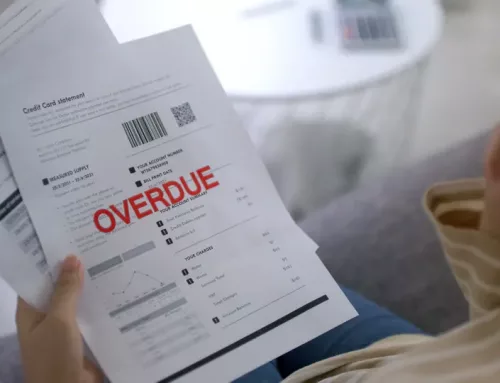Bankruptcy is a legal proceeding that can help debtors to get rid of their debts. Debtors can choose from two main types of bankruptcy proceedings to deal with their financial issues. One of them is Chapter 7, or liquidation bankruptcy. The other one, which is more beneficial for many debtors, is Chapter 13 bankruptcy.
This article explains who can file for Chapter 13 bankruptcy and how it will affect the debtors’ future lives.
How does Chapter 13 work?
Chapter 13 is a bankruptcy process available under federal law for specific individuals. It allows you to restructure your debt so you can pay back creditors without filing for bankruptcy.
Chapter 13 is referred to as the restoration chapter because it requires you to present a plan to repay your debts at a particular time. This is usually referred to as a Chapter 13 repayment plan.
Chapter 13 bankruptcy law requires a debtor to file an agreed-upon statement of affairs with the court. This statement of affairs must include information about the debtor’s assets and debts.
Bankruptcy law also provides for automatic stays against collection activities by creditors. Automated visits prevent creditors from collecting debts from a debtor until the bankruptcy court approves a plan of reorganization or liquidation.
While Chapter 13 may be a solution for many people who find themselves in financial trouble, it is not for everyone. It helps if you are cautious before your application. While Chapter 13 gives you some control over how you pay back your debts, it also gives you control over how a creditor will treat you in the future.
Do I qualify for Chapter 13 bankruptcy?
Chapter 13 bankruptcy is primarily concerned with the repayment plan for your obligations. The court-ordered payment plan specifies when, how, and how much you will pay each of your creditors each month. If you make all of these payments on time during the duration of your bankruptcy, it will erase the rest of your obligations, and you will owe these creditors nothing more.
Not everyone qualifies for Chapter 13. You may be disqualified for Chapter 13 bankruptcy if you meet the following criteria:
- You do not reach the required income level. Chapter 13 requires debtors to earn a sufficient monthly income to pay off secured obligations, such as a vehicle or a home. If you do not make enough money or your payment is inconsistent, the bankruptcy court may deny you this kind of bankruptcy.
- You owe an excessive amount of money. If a debtor’s outstanding obligations are unreasonable, they may be excluded from Chapter 13.
In 2016, the courts needed that a filer has less than $1,184,200 in secured obligations and less than $394,725 in unsecured debts to qualify for Chapter 13 — and these thresholds vary year to year.
Chapter 13 Bankruptcy Requirements
A Chapter 13 bankruptcy case can last for years, and during this time, you must complete specific steps to discharge your debt and restore your credit rating successfully. These steps include:
Credit coaching
Complete credit counseling before declaring bankruptcy with a nonprofit credit counseling organization. Additionally, your counselor may assist you in developing a repayment plan.
Call an attorney
Engage the services of an experienced bankruptcy lawyer. Chapter 13 is a complex procedure, and skipping a step or improperly filling out paperwork may result in your case being rejected or some obligations being unpaid.
Detailed paperwork
Your attorney will assist you in completing the different paperwork necessary for filing. You’ll need to compile data on your whole financial situation, including your debts, income, property, and monthly expenditures.
Send bankruptcy petition
Also referred to as “filing” bankruptcy, the procedure begins with submitting the necessary paperwork. A trustee in default will be appointed. When you file for bankruptcy, you trigger what is known as an “automatic stay,” which means that the majority of efforts to collect on your debts must stop.
You must provide a suggested payment plan within 14 days of filing the petition. Within 30 days of the petition’s submission, you must begin paying payments even if it has not yet been authorized.
After the petition filling, between 21 and 50, the trustee will call a meeting of creditors to address any outstanding problems with you.
Confirmation hearing
Within 45 days after the creditors’ meeting, you, the trustee, and any creditors present in court will convene to confirm the payment plan.
Payment
Creditors are paid according to the plan’s terms over a three- to five-year period.
Before filing for Chapter 13, you must take a “debtor education course” offered by a nonprofit credit counseling organization.
The Benefits of Chapter 13 Vs. Chapter 7
- You may repay delinquent house notes or mobile homes with land notes (both considered mortgage loans) in small monthly installments over 36-60 months.
- You may pay delinquent taxes without incurring penalties or interest over 36-60 months (penalties and interest are suspended upon filing for Chapter 13).
- You may repay child support and alimony arrears over a 36-60 month period.
- Mobile home debt that is not secured by real estate may be paid for at current market value and amortized over a 36-60 month period, reducing the total amount due and perhaps even the monthly payment.
- Secured debts (such as automobiles, trucks, furniture, appliances, and household items) may be extended for 36-60 months, reducing the monthly payment.
- Secured debt (such as furniture, appliances, and household items) bought more than a year ago may be paid off at their current value and spread out over a 36-60 month period, reducing the balance due and monthly payment.
- Automobiles that have been owned for more than two and a half years may be paid for at their current worth, not the amount due to the creditor, and this new sum may be paid over 36-60 months, reducing the balance owed the monthly payment. Vehicles registered in your name but driven by another family member may be paid.
- For at its current value and reimbursed over a 36-60 month period, reducing the balance due and the monthly payment.
- In Chapter 13, the interest rate on secured loans is just 7%.
- Your Chapter 13 filing protects co-signers and anyone responsible for your obligations.
- You may discharge certain non-alimony property settlement liabilities.
- Student loan payments may be lowered or deferred for 36-60 months.
- Without the approval of the court, foreclosure and repossession is not permitted during the Chapter 13 bankruptcy.
Get Legal Advice from a Phoenix Bankruptcy Attorney
At this point, you should know whether you can file Chapter 13 Bankruptcy to eliminate your debts. If you’re still unsure, talk to a Phoenix bankruptcy attorney who can help you decide what is best for your situation.












